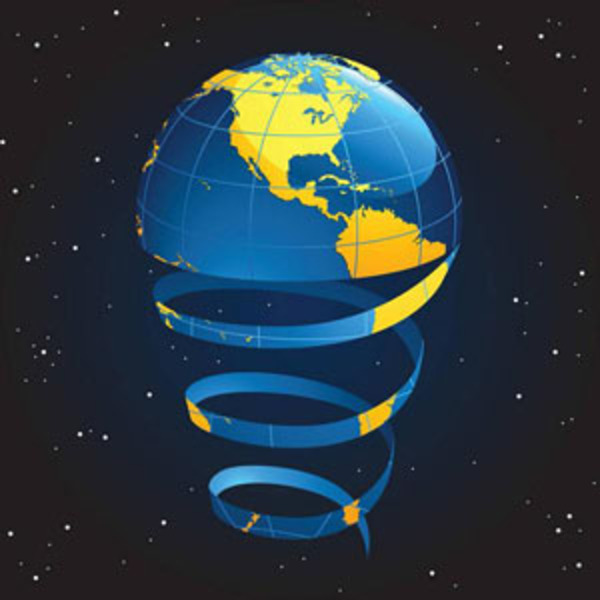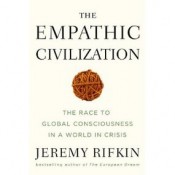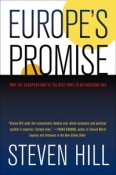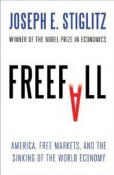Q&A: Johnson, Eskow, Dellinger
Written on August 18th, 2011 |
Aired 08/14/11
I've invited three people to begin a conversation with me about what's broken at the intersection of our society, our politics, and our economy, how it got broken, and how we can fix it.
ROB JOHNSON served as chief economist of the US Senate Banking Committee, was a Management DIrector at Soros Fund Management, and is now Executive Director of the Institute for New Economic Thinking (INET), funded by Soros to encourage and support a rethinking of the fundamentals of economics so that they take into account the role of human behavior including politics.
R J ESKOW, a former executive and consultant on matters of finance and information technology, to AIG, the World Bank and the State Department, is a prolific blogger at the Huffington Post and Campaign for America's Future.
DREW DELLINGER is a poet, teacher, activist and founder of Planetize the Movement. He is currently finishing his doctoral dissertation on the last years of Martin Luther King Jr., and co-wrote the documentary film, The Awakening Universe.
Learn more at drewdellinger.org, for RJ Eskow -- ourfuture.org/users/new-4468 or nightlight.typepad.com/,
for Rob Johnson -- ineteconomics.org
Economic Armageddon: Gretchen Morgensen on How Wall Street Broke the Economy
Written on July 26th, 2011NYT business reporter Gretchen Morgensen discusses her new book and the corruption of the mortgage lending industry.
July 26, 2011 | Gretchen Morgensen was awarded the Pulitzer Prize in 2002 for her “trenchant and incisive” coverage of Wall Street and has been on that beat ever since. Her new book, Reckless Endangerment: How Outsized Ambition, Greed, and Corruption Led to Economic Armageddon (written with Joshua Rosner), lays out the toxic interplay between Washington, Wall Street and corrupt mortgage lenders that led to the meltdown. It examines how the watchdogs who were supposed to protect us from financial harm were actually complicit in creating the crisis.
Gretchen Morgenson is a business reporter and columnist at the New York Times, where she also serves as assistant business and financial editor. Prior to joining the Times in 1998, she worked as a broker at Dean Witter in the 1980s, and as a reporter at Forbes, Worth, and Money magazines.
Continue reading “Economic Armageddon: Gretchen Morgensen on How Wall Street Broke the Economy”
Q&A: JEREMY RIFKIN, President of the Foundation on Economic Trends – Author
Written on November 30th, 2010 |
Aired 11/28/10
JEREMY RIFKIN is the bestselling author of The End of Work, The Biotech Century, The Hydrogen Economy and The European Dream. A fellow at the Wharton School's Executive Education Program at the University of Pennsylvania, he is the president of the Foundation on Economic Trends in Washington, D.C. His newest book is THE EMPATHIC CIVILIZATION.
Q&A: STEVEN HILL, Author – Europe’s Promise
Written on June 2nd, 2010 |
Aired 05/30/10
We're hearing a lot about the trouble Europe is in. The debt crisis in Greece, and perhaps Spain, Portugal, and Italy, is threatening the Euro and the European Union. What's really going on? How did it happen? How bad is it? How will they deal with it? And what does it mean for the rest of the world and for the US in particular?
We'll deal with those issues this Sunday, but that's not all. While the bad news of this Euro crisis makes headlines in the US, a quiet and successful revolution taking place in Europe does not. Europe seems to be finding a way to make capitalism and democracy work for people, not just for corporations. I think this is a critical unreported story in terms of its potential impact. Here's just a few things you may not have heard about.
The European Union, 27 member nations with a half billion people, has become the largest, wealthiest trading bloc in the world, producing nearly a third of the world's economy - nearly as large as the U.S. and China combined. Europe has more Fortune 500 companies than either the US, China or Japan.
European nations are rated by the World Health Organization as having the best health care systems in the world. Yet they spend far less than the United States for universal coverage, even as U.S. health care is ranked 37th.
Europe leads in confronting global climate change with renewable energy technologies like solar and wind power, conservation and "green design," creating hundreds of thousands of new jobs in the process. Consequently, Europe's ecological "footprint" (the amount of the earth's capacity that a population consumes) is about half that of the United States for the same standard of living.
Q&A: JOSEPH STIGLITZ – Nobel Peace Prize (Economics) & Author – Free Fall
Written on March 10th, 2010 |
Aired 03/07/10
JOSEPH STIGLITZ became a full professor at Yale in 1970 at the age of 27, and in 1979 was awarded the John Bates Clark Award, as the economist under 40 who had made the most significant contribution to the field. He has taught at Princeton, Stanford, MIT and Oxford, and is now University Professor at Columbia University, Chair of Columbia's Committee on Global Thought, and co-founder and Executive Director of the Initiative for Policy Dialogue.
Stiglitz was a member and chairman of the Council of Economic Advisers during the Clinton administration, and later Chief Economist and Senior Vice-President of the World Bank. In 2001, he was awarded the Nobel Prize in economics and he was a lead author of the 1995 Report of the Intergovernmental Panel on Climate Change, which shared the 2007 Nobel Peace Prize.
JOSEPH STIGLITZ is the author of, among other books, Globalization and Its Discontents, Fair Trade for All, Making Globalization Work, The Three Trillion Dollar War: The True Cost of the Iraq Conflict, with Linda Bilmes, and his newest, Freefall: America, Free Markets, and the Sinking of the World Economy.
